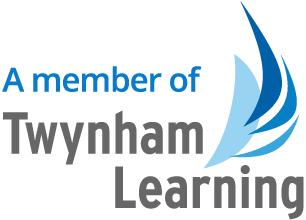Drama
Drama is a subject that allows students to express themselves in a safe and inviting environment filled with positivity.
Curriculum Information
Key Stage 3
Year 7
Year 7 start their drama course by studying important key skills and performance techniques, learning how to devise and create a character, structure performances and evaluate work. Next, they will use William Golding’s ‘Lord of the Flies’ as inspiration for a journey on a deserted island developing their techniques. They then have the opportunity to study World War II through the scripted play ‘Evacuees’. Ending the year focusing on theatre history as they look back in time at Ancient Greek Theatre, following the turbulent story of Athena and Arachne.
Year 8
Year 8 begins with students developing key skills and techniques with an initial focus on Aristotelian structures, followed by the historical events of the Titanic, taking students through a timeline of this great tragedy. Students will then get the opportunity to explore the intriguing script 'Sparkle Shark' and end Year 8 studying theatre history through the Shakespeare play ‘Macbeth’.
Year 9
In Year 9, we aim to encourage students to learn the skills needed at GCSE. We start with improvising and devising skills which explores a wide range of naturalistic and abstract ways of creating performance through studying influential drama practitioners such as, Konstantin Stanislavski and Bertolt Brecht. Following this, we look at the exciting play 'Around the World in 80 Days and end the year consolidating students knowledge of skills, techniques, scripted work and appreciation.
Throughout Key Stage Three, students will be assessed periodically on their practical work.
Key Stage 4 - Options Information
| Exam board: AQA |
| Qualification: GCSE in Drama |
| Specification: AQA GCSE Drama |
|
Assessment: The GCSE Drama course has both a written and a practical exam. Written exam (40%) You will have to sit a 1 hour 45 minute written exam which will ask you questions about drama terminology, set plays and live productions. You will tested on your ability to reflect on the work of others and on your understanding of how to create a character. You will sit the written exam at the end of the course and it will be externally marked by AQA. Practical exam (60%) You will be assessed on your ability to create and perform a piece of original work created by your group. You will also have to keep a devising log which analyses and evaluates the development of your piece. You will have to rehearse and perform two extracts from a scripted text. Your performances will be marked by your teacher and a visiting examiner throughout Years 10 and 11. |
|
Who is the course for? This course would particularly suit those who have a keen interest in drama and would like to stretch themselves to learn more about new theatre and drama techniques. Students will need to enjoy both the performance and theory side of drama and be keen writers and critics. Students who want to study drama should be: • Enthusiastic and full of energy |
|
What will I do on the course? Drama is a highly practical course where the majority of your time will be spent exploring and creating drama. There is as much opportunity as possible for you to do what you like the best – participating in performance. All students devise drama. All students explore texts practically and work on two text-based performances. Students can choose to develop as a:
Whichever option you choose, you can be sure to learn invaluable skills, both theatrical and transferable, that will expand your horizons. In Year 10, you begin the course with a practical unit that explores the exciting and unique world of acting, looking at the many different ways to create inspiring, funny and moving drama. You will then practically explore the Malorie Blackman’s iconic play ‘Noughts and Crosses’ which delves into an alternate universe, staging and performing many of the most dramatic scenes in the play. You will end the year, creating your own original piece of theatre based on a wide variety of ideas. In Year 11, you will develop your acting skills further by performing two extracts from a popular modern play. You will also become a theatre critic, watching and evaluating professional actors in a live show. |


